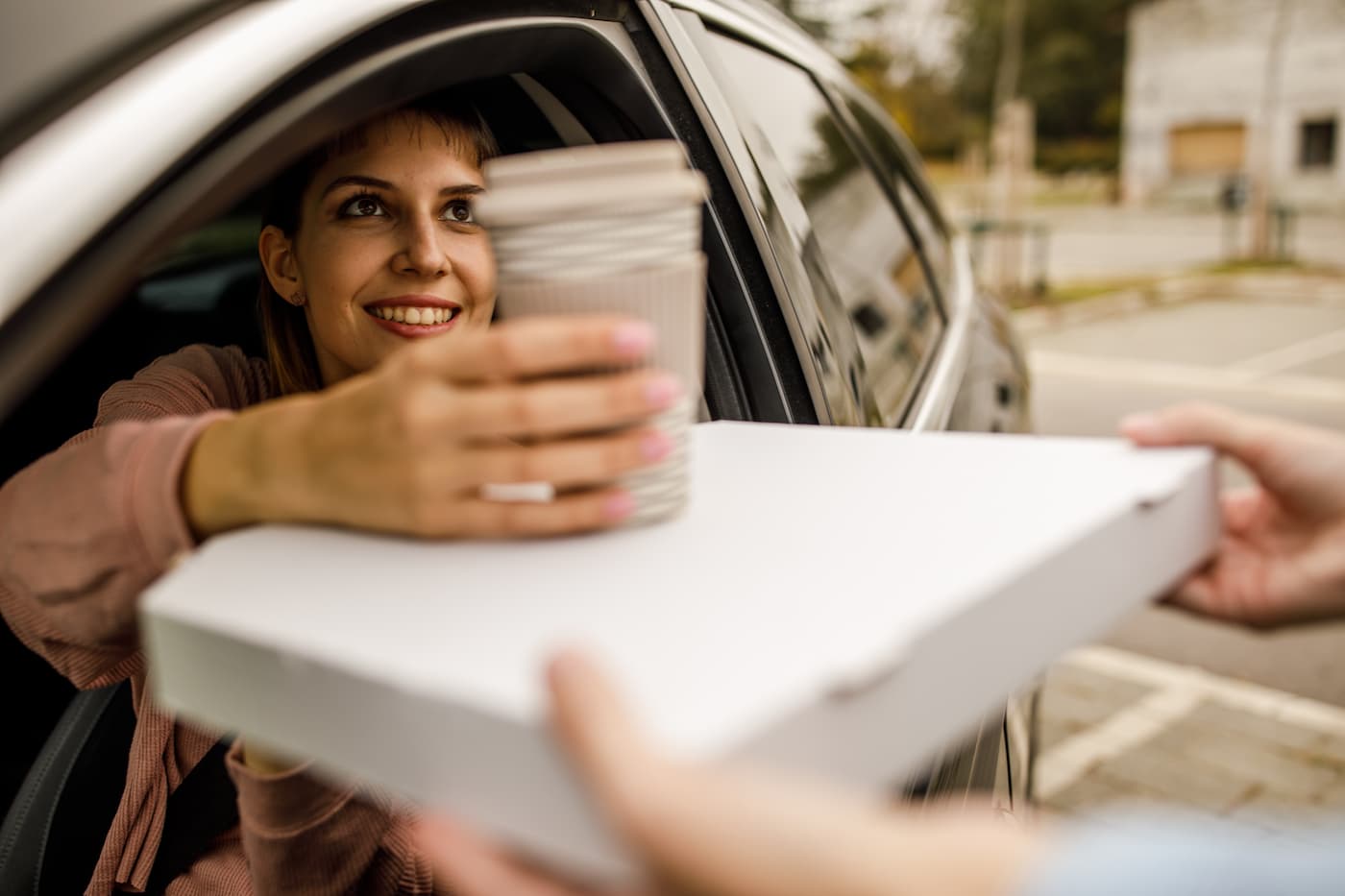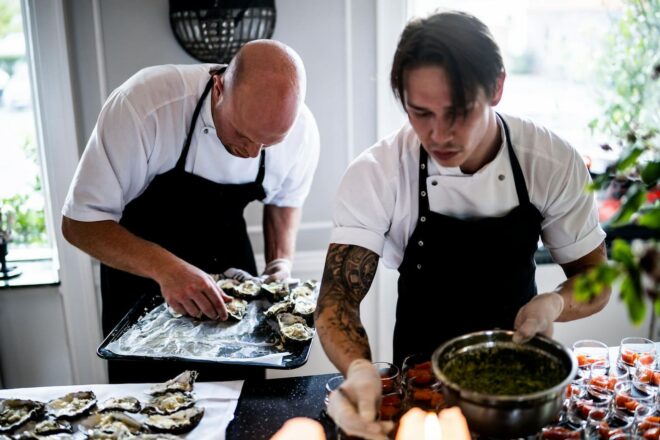How to start a successful drive-thru beverage business
Editorial Team
6 min read
The time has never been better to open a drive-thru beverage business. The drive-thru market has become even more popular over the last few years–especially beverage drive-thrus.
According to The New York Times, drive-thrus are enjoying a new surge in traffic. Thanks to technology, cultural shifts (think increased pet ownership among millennials and Gen Zers), and even a global pandemic, people have gotten used to ordering and consuming food and beverages in the comfort and security of their own vehicles.
During the pandemic, the drive-thru saw an uptick of about 30% in popularity. Now, it accounts for over two-thirds of all fast food purchases. So, whether you specialize in coffee, boba tea, soda, or even alcoholic beverages, there’s no time like the present to invest in a drive-thru beverage business.
Read on for 7 tips to help you start a drive-thru beverage business or add one to your existing business. And, learn how real-world Clover businesses have seen drive-thru success.
1. Do your research
Market research is a must when opening a business. In considering demand, think about your target market and who your competitors are. It’s a great idea to physically visit different kinds of shops like the one you want to open and scope out their operations, location, and menu. This will help you make informed decisions about what products to offer, the prices you should set, and how to market your business.
2. Plan your business
Once you’ve done your research, it’s time to get serious and create a business plan. A business plan is like a blueprint–it defines your objectives, strategies, and resources required to start and run your business. It’s also crucial to have a business plan to share with potential investors, advisors, and collaborators. Your plan should include a big-picture summary plus the nitty gritty of operations including your financing options, target market, pricing strategy, and marketing plan.
3. Obtain the required permits and licenses
Obtaining the required permits and licenses will depend on the laws and regulations of your city or state. This step is particularly important if you’re thinking of selling alcohol, but don’t overlook it if you’re selling coffee or tea either. You may need to apply for a business license, health permit, and food service permit. Check with your local government agency to ensure that you are complying with all the necessary regulations.
4. Pick your location
One benefit of starting a drive-thru beverage business is that overhead costs are relatively low. They’re even lower if you find a location that is already up and running–a tactic used to great success by Jasmine Diedrich of Diedrich Espresso, who runs 12 locations in Washington. Other considerations include making sure your location is accessible, visible, and safe. While areas with high-traffic volume are ideal, it’s important to make sure that there’s enough space for cars to line up and that the location has sufficient parking spots.
5. Set up your beverage drive-thru business
This is the fun part! Make sure you have all necessary supplies, including signage and inventory. In addition to equipment like commercial refrigeration units, you’ll want a dependable POS system that accepts all payment types, meets the demands of your customers, and is easy for your employees to learn. Speaking of which, it’s also the time to hire your team!
6. Market your business
Getting the word out is crucial to launching a drive-thru beverage business. There are plenty of ways to reach your target audience, from social media and email marketing to keeping your website fresh. Make sure you have a strong brand identity that resonates with your target audience. Then, get those discounts and promotions going to entice new customers and encourage repeat business.
7. Add a drive-thru window to your existing store
Say you already have a beverage business or QSR (quick service restaurant) and want to capitalize on the drive-thru boom. Great! Before you dive into renovations, make sure that installing a drive-thru is the right decision for your business.
First, consider the total cost. While the average cost to install a drive-thru window is between $550 – $1000, the total cost of opening a drive through can range from $35,0000 to $80,000. Then, compare that with your estimated profit. Many restaurants derive up to 75% of their revenue from the drive-thru. Then, think about the design and logistics needed to support an efficient drive-thru–and whether or not similar businesses have drive-thru windows. Drive-thrus can be an excellent way to capitalize on an additional sales channel, but it’s a big decision and commitment.
Once you’ve done your research and you’re ready to take the plunge, your opening-day checklist should include:
1) Gathering equipment, including menu display, squawk box, and security cameras
2) Acquiring additional permits to meet fire-safety and design requirements
3) Training your staff on the new tasks, expectations, and responsibilities
Customers often have different expectations of a drive-thru than a dine-in restaurant, so it’s important to train your entire staff on those differences and how to create a great customer experience in a drive-thru.
Real-world success stories
With 12 locations in Washington state (10 of those being fully drive-thru), Jasmine Dietrich of Diedrich Espresso has her hands full. Her secret to success? She has opted to buy existing drive-thru stands. Not only does this help with the scouting process, but it inspires ideas she may not have had otherwise. Diedrich explains: “We go into the location, we see everything that they’re doing, and often we think, ‘Wow, they’re doing this better than us. Why didn’t we think of that?’ Then we adopt those ideas from the locations that we buy to try to make our company better.”
Coffee isn’t the only beverage taking the drive-thru by storm. In fact, at Icy Mountain Water in Medicine Hat, Alberta, Charlotte and Neil Bonogofsky offer a drive-thru option for customers who want to quickly and conveniently pick up their reverse osmosis water, bagged ice, or CO2 canisters. Daughter and employee Brandy Wilde says, “We get people in and out really quickly with our drive-thru. It’s been such a blessing to have this service. Our customers can pull up to the speaker to place their order, and we take their order right out to their vehicle–with our Clover Flex—they pay for their order and we load their vehicle.”
Starting a drive-thru beverage business requires the same careful planning, research, and execution that comes with starting any small business. But with the right tools, strategy, and team, drive-thru stands offer some great possibilities.
To learn more about our restaurant POS solutions that can help you move lines along and keep your business running smoothly, contact a Clover Business Consultant today.
CONTACT SALESThis information is provided for informational purposes only and should not be construed as legal, financial, or tax advice. Readers should contact their attorneys, financial advisors, or tax professionals to obtain advice with respect to any particular matter.
Related Posts
How to build a restaurant leadership team
Full Service Restaurants (FSR)
Using memberships and subscriptions to grow your business
Popular Topics
Stay in touch
Sign up and learn more about Clover.
Thank you for your subscription!
More posts about starting a small business
eBook





